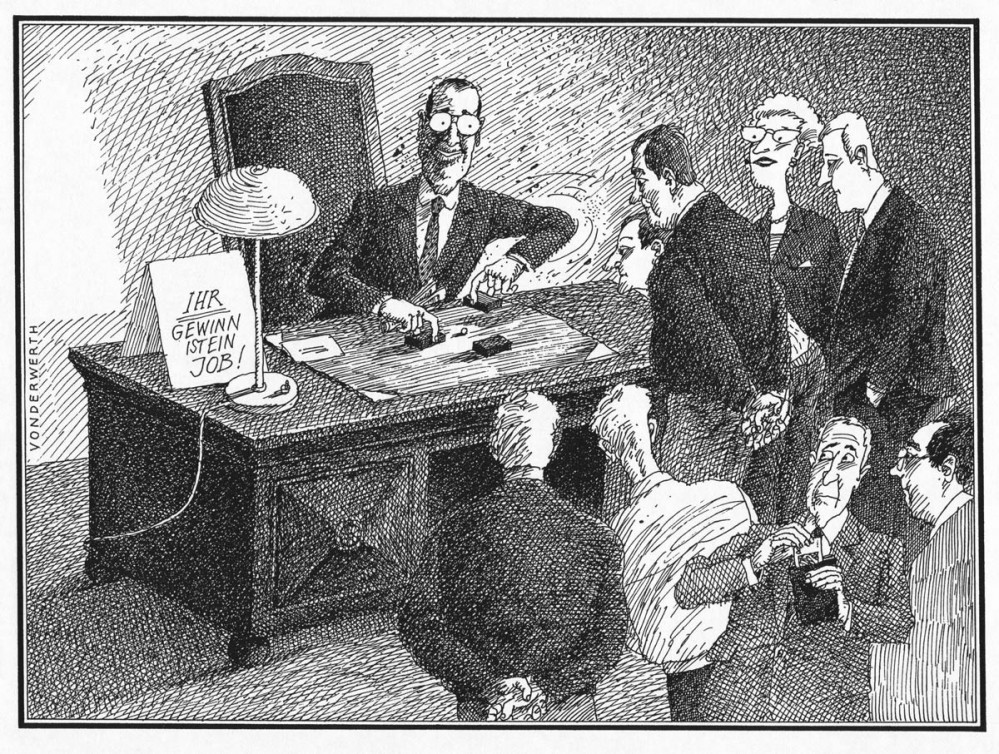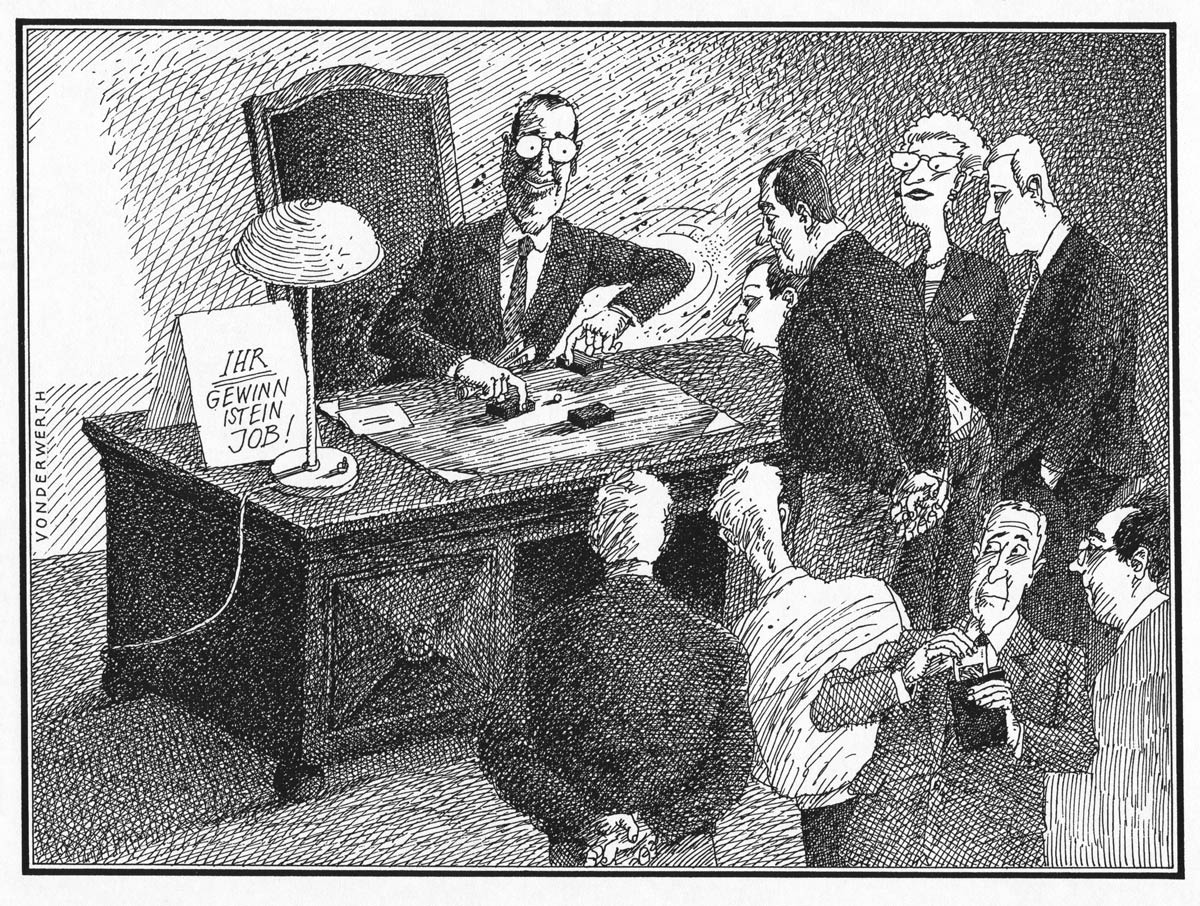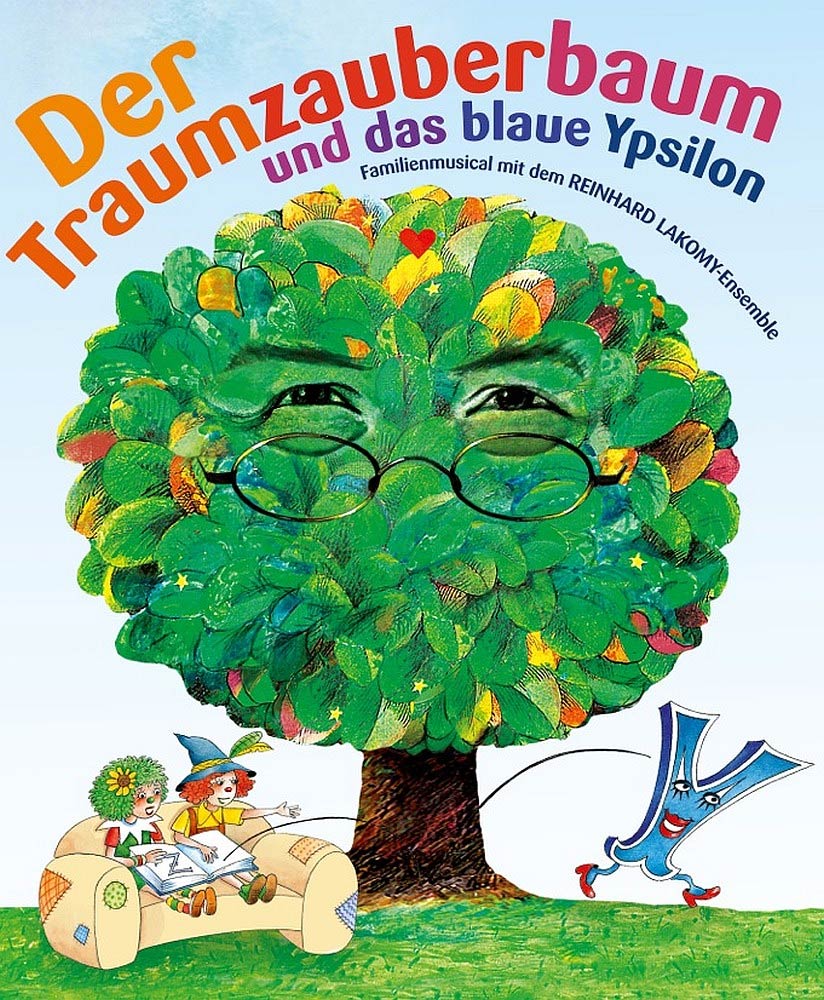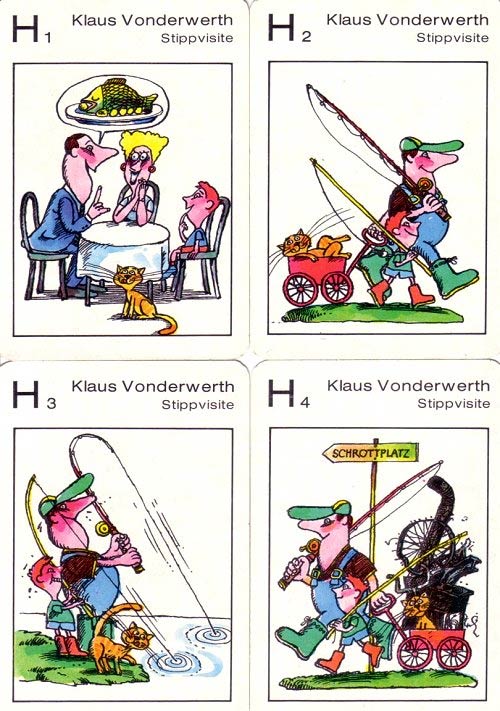'Hütchenspieler'. Translation: "Here, winning is a job!".
Klaus Vonderwerth was a German cartoonist and illustrator, best known for his 1960s, 1970s, 1980s work for publications in East Germany (the DDR). As a comic artist, he made mostly children's pantomime comics, such as 'Albert' (1964-1965), 'Ako' (1964-1966) and the little robot 'Kybert' (1966-1967).
Early life and career
Klaus Vonderwerth was born in 1936 in Berlin. He showed talent for drawing from an early age on. As a young man, he was trained as a decorator in East Berlin (1951-1954), before he went to study visual arts in West Berlin (1955-1959). He lived in the borough of Schöneberg during this period, while earning some money through several odd jobs. During the holidays, Vonderwerth loved to hitchhike, visiting Spain and also Africa. When the East German borders were closed in 1961, he continued to travel as far as he could and visited Hungary, Romania and Bulgaria. Vonderwerth also began his artistic career during this period, always trying to find jobs without party affiliation.
Illustration career
Vonderwerth illustrated album covers for East German musical acts like The Klaus Renft Combo, Frank Schöbel and Die Puhdys, and for records with fairy tale plays and Peter Hacks stories. He illustrated children's books and drew cartoons for the cultural monthly Das Magazin and the satirical magazine Eulenspiegel. An entire generation of children know him from the thirteen album covers he illustrated for the 1980s children's play 'Der Traumzeuberbaum' by Reinhard Lakomy and Monike Ehrhardt. He also contributed a comic strip for the playing cards game 'Die Kinder vom Wolkenplatz' (1988).
Comics
Vonderwerth made short humorous comic strips for the children's magazine Der Trommel, starring the dog 'Albert' (1964-1965), the little black kid 'Ako' (1964-1966) and the little robot 'Kybert' (1966-1967). A comic strip called 'Ruf 110' (1963) appeared in five episodes on the humor page of Der Wochenpost.
'Die Abenteuer des kleinen Ako'.
Controversy
With his cartoons, Vonderwerth subtly poked fun at the stupidity and narrow-mindedness of the time. On a couple of occasions, he got into trouble with the East German communist authorities. His design for the film poster of the tragicomedy 'The Legend of Paul and Paula' (1973) featured the main players kissing among Baroque ornaments, which vaguely looked like ears and eyes. The East German intelligence service Stasi felt that they were targeted, and banned the poster. One cartoon by Vonderwerth depicted a fallen tree with a huge crown. This resulted in an angry letter from someone who ranted: "How dare you depict Karl Marx lying on the ground?!"
'Der Traumzauberbaum und das blaue Ypsilon'.
Recognition
Despite living behind the Iron Curtain, Klaus Vonderwerth received several prizes. He was awarded in Yugoslavia, Switzerland, Belgium and Norway, even though he wasn’t aware of his 1987 Norwegian prize until a Swiss colleague congratulated him. Apparently, the official letter reporting the prize had been intercepted by the East German spy service the Stasi.
Post-communist career, final years and death
After the Berlin Wall fell in 1989, Vonderwerth continued his career with political cartoons in Neue Berliner Illustrierte, Die Zeit and the Süddeutsche. His work has been exhibited in Eastern and Western Europe, Canada and Japan. The artist passed away on 18 March 2016 after a long illness, at the age of 80.
Comic strip depicted on playing cards for 'Die Kinder vom Wolkenplatz'.







